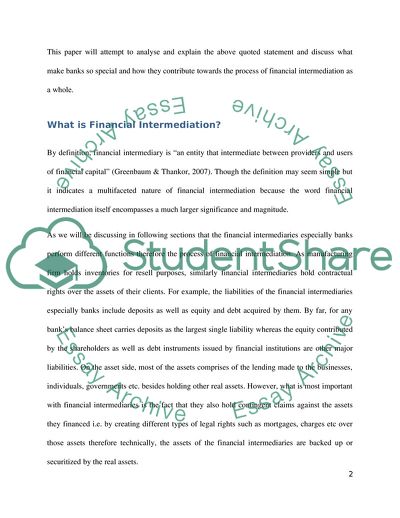Cite this document
(Banks as a Kind of Financial Intermediary Assignment, n.d.)
Banks as a Kind of Financial Intermediary Assignment. https://studentshare.org/finance-accounting/1718033-banks-are-one-kind-of-financial-intermediary-explain-this-statement-and-discuss-what-makes-them-special
Banks as a Kind of Financial Intermediary Assignment. https://studentshare.org/finance-accounting/1718033-banks-are-one-kind-of-financial-intermediary-explain-this-statement-and-discuss-what-makes-them-special
(Banks As a Kind of Financial Intermediary Assignment)
Banks As a Kind of Financial Intermediary Assignment. https://studentshare.org/finance-accounting/1718033-banks-are-one-kind-of-financial-intermediary-explain-this-statement-and-discuss-what-makes-them-special.
Banks As a Kind of Financial Intermediary Assignment. https://studentshare.org/finance-accounting/1718033-banks-are-one-kind-of-financial-intermediary-explain-this-statement-and-discuss-what-makes-them-special.
“Banks As a Kind of Financial Intermediary Assignment”. https://studentshare.org/finance-accounting/1718033-banks-are-one-kind-of-financial-intermediary-explain-this-statement-and-discuss-what-makes-them-special.


